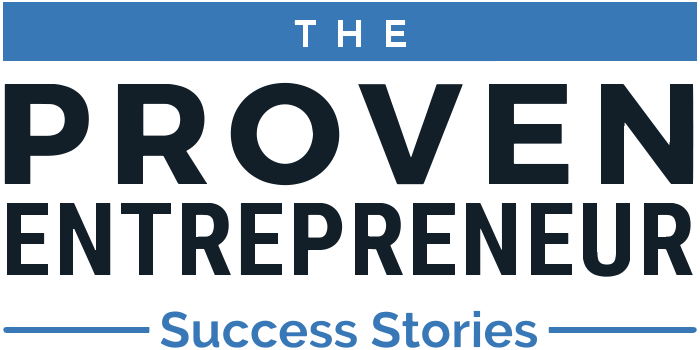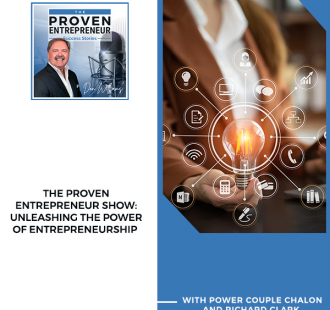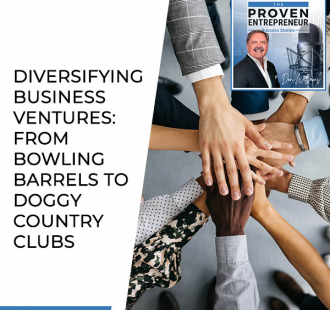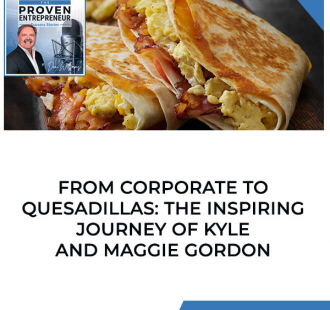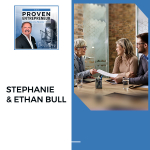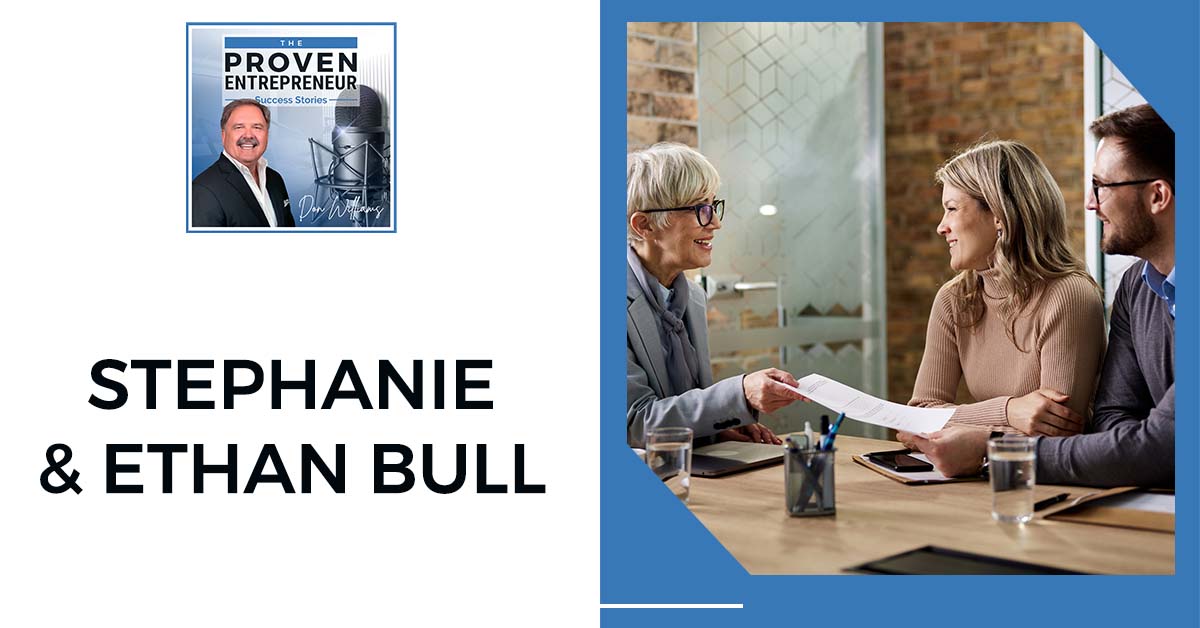
Your path to success doesn’t have to be lonely. For you to go a long way, having someone by your side can lead to a much better journey. In this episode, Ethan Bull and Stephanie Bull, the Founders of ProAssisting, take their moment to share the story of how they embarked on the path of entrepreneurship and how it led them to success. They share the amazing work they are doing at ProAssisting, where they provide remote executive assistant support. Going behind the story of their success, Ethan and Stephanie tell us how they navigate business as a married couple. While it can be difficult, they show us that it is possible. They agreed that giving grace to each other does help the marriage go hand in hand with business. Gain insights from these mighty bulls charging toward success today. Tune in to find more business and life lessons.
For information on how to work with Don visit Work With Don Williams
You can also reach out to Don Williams at https://donwilliamsglobal.com
Please join Don and his businesses in support of St. Jude’s Children Research Hospital in its Mission to cure Childhood Cancers. You can donate to St. Jude at stjude.org/donate
—
Watch the episode here
Stephanie & Ethan Bull
Entrepreneurs – Married With Children
I have a real treat for you. I have a husband-and-wife team. Joining us are Stephanie and Ethan Bull. They are Cofounders of ProAssisting, which is a next-gen remote executive assistant firm business primarily for C-Suite executives. Their backgrounds are phenomenal. Ethan held a bunch of senior positions, including Director of Administrative Services and Senior EA to the President and CEO of Rochester Regional Health.
Stephanie, the Cofounder of ProAssisting, is a former EA for J.Crew’s CEO and the CEOs of two multibillion-dollar hedge funds. Before developing ProAssisting, Stephanie proved herself as an expert in the field and a vital addition to the C-Suite by fulfilling a variety of roles, including Chief of Staff, Estate Manager, and Investment Liaison. Stephanie and Ethan Bull, welcome to the show.
Thanks for having us.
We are so thrilled to have you. I want to take you all the way back to little Stephanie and little Ethan. Let’s start at age 5, and you can go up to age 18. Stephanie, we will start with you. Ladies first. Tell me. In your home, how that works, was there an adult who provided an entrepreneurial example for you?
My father worked for other people for many years but when I was about ten, he became very interested in opening a McDonald’s franchise. It’s quite the endeavor. I’m not sure how aware you are but McDonald’s Corporation puts you through a lot to get there. The vetting process is extreme. You have to have the finances and resources. I remember him being gone. My mother was raising us as a single mom as he went to work every day. He worked ten hours a day, and then he had to work in a McDonald’s store for about two years where they make you do everything from sweeping the floors to cleaning the Sunday machine to closing the books at night.
He had to attend Hamburger University in Chicago for about two weeks. He was always my example of that spirit and work ethic. It was instilled in me. I never questioned it. I was lucky to have a mother who was there to support him and us while he did all of that. Behind every strong person is a strong partner, and that was my mother. That was my example.
That’s a great example. McDonald’s is the original system, “You never have to decide anything. We know how to do everything. We will train you until you wake up in the middle of the night reciting the steps by which you must go through to accomplish putting cheese on that patty or putting that patty on the grill.”
They drill those procedures into you.
Systemized everything may be the reason probably of all time, it’s the champion of fast food in America, the world, and some up-and-comers now. For a long time, McDonald’s was it. Ethan, you’re getting the benefit of Stephanie answering the question first. All the way back to little Ethan, 5 to 18 in your house, was there an entrepreneur?
There were two. I’m an only child with four parents growing up. My stepfather was an attorney who owned his practice. That’s running your business and paying for healthcare, office expense, and all of that in addition to being an attorney. My father is a true entrepreneur. I’ll go back before five. When I was three, I was sitting on a bar stool in Filthy McNastys in Seneca Falls, New York, which was one of his first businesses.
He transitioned and did real estate while he was running the bar, became a broker and then a home builder, sold the bar, bought a trailer park with my grandfather and then a bowling alley, and then sold the bowling alley to buy into a restaurant. He ran the restaurant for 21 years and collected a couple of more trailer parks. He was the embodiment of the entrepreneur. He realized he couldn’t work for someone else and wanted to forge his path and create his schedule. Both those role models embodied the entrepreneurial spirit.
I love that. Your dad’s grazing along the entrepreneurial path when you said trailer park is a good business. It’s a custom real estate play but a solid business. Many people think entrepreneurs start with a profit motive. I find that to be rarely the case. Much more often, it’s, “I cannot work for anybody anymore. I cannot take direction from idiots. I have to do my thing. I have to control my schedule even if it means I’m going to work ten hours a day, go to work in another store, and then go to university.” That’s the entrepreneurial way. You were eighteen. You graduated high school. Stephanie, you joined the Merchant Marine and backpacked across Europe. What was your first step out of your childhood home?
Many people think entrepreneurs start with a profit motive. More often, entrepreneurs' motive is to achieve freedom. Click To TweetBetter yet, I became a Wisconsin Badger. I went to the University of Wisconsin in Madison. I grew up on the East Coast but my dad was from Wisconsin. My whole life, we had been going there to visit my grandparents and family. When it came time for me to look at colleges, I looked at several East Coast schools and fell in love with Wisconsin. It was four years in Madison and lots of hard work but lots of fun. That’s where I was.
I personally love Wisconsin in the summertime even though locals love it year-round. That’s above my head. It’s cold in the wintertime.
It’s tundra cold.
They seem to like it for some reason. I don’t get it but I’ve been in the South forever. Ethan, what about you? Eighteen, out of your household home, did you join the Merchant Marine and backpack across Europe?
I did not. I went to Bentley College outside of Boston and Waltham, which is a specialty business school. That was partially due to the fact that I grew up with those entrepreneurial father figures. In junior year, I did study abroad in Australia for six months, which had a real profound impact on my career trajectory in terms of using that time to try and figure out where I wanted to go and what I wanted to do. After college, I moved directly to New York City.
What was our first job post-college? We were not early entrepreneurs. We are midterm entrepreneurs. When you graduated school, you had to get a job. Tell me about that, Stephanie.
My first job is I got a job working in Washington, DC. I was working for an editing firm. They did editing and consulting for the World Bank and IMF. I was hired as an editorial assistant/personal assistant for the CEO and Editor-in-Chief who was a very eccentric man. He was bright but eccentric. Many of my days there were spent taping 200-page documents to a wall with scotch tape because he was a big-picture guy. I would help him go around and circle paragraphs to move. It was old school but it was great. It was so cool to see that process. I was introduced to a lot of bright and interesting people from all over the world. That was cool. That was my first job. I was paid little but it was pretty exciting.
Sometimes the payoff isn’t dollars. It sounds to me like he was potentially a genius and a little unique but many times, those go together. I’ve written four books and been through the editing process four times. I have other books I’m in the process now. I cannot imagine printing out the manuscript and taping it to the wall. That makes me hyperventilate a little bit even thinking about that.
I get anxious when I wrap Christmas presents because of all the scotch tape.
It looked like you were getting a little nervous there, Don.
I’ve got three books in the process. I don’t recommend anybody do that but they’re all banging to get out of my head. They’re all getting some attention. I cannot imagine that form of editing. He sounds like a very bright individual. He had a process. Good for him. Ethan, first job?
I found my first job in New York City through my internship in Boston during my senior year in college. I was interning for WEA, which is Warner-Elektra-Atlantic, three record labels under the Warner Brothers conglomerate. I heard that Warner Brothers was shooting a movie in New York and needed production assistance. It so happened that my uncle lived in New York and had a one-bedroom apartment that he used as his office. My stepfather convinced him to let me pay half the rent bill. Since it was rent-controlled, it was $300 a month, which was fantastic.
That brought me to New York to work on a film. I was both in the production office as well as on set. On my first day going up in the production office, I rode the elevator with Meg Ryan. It was the two of us. I was very starstruck. She was extremely gracious and talked to me down to her level and down to a human level, which blew my mind. It goes back to how gracious she was. That was my first day in New York.
Welcome to the Big Apple. Your internship was in Boston and your first job was in New York City. You’re a huge baseball fan. I’m like, “It wasn’t the Red Sox to the Yankees. That much I know.” Stephanie, you stepped into the EA job at the editor company. Did you take a further step into the EA world after that role?
I did. I took a detour. I had broken up with my college boyfriend. It wasn’t the right fit. I left DC and left my life. It was one of those what-am-I-doing times. I moved back to my parents’ home, which was in New Hampshire, which was one of the most humbling things I’ve ever done. I was 23. Luckily, my parents were happy to have me back. They didn’t know how long it would be but I got a part-time job working for Fidelity. Their headquarters were there in New Hampshire at the time. They’re in Boston. I did a lot of human resources stuff. I learned that side of the business.
I was working in customer service. I was on phone calls half the day. I waitressed. That’s what I did. I had two jobs. About eight months in, I talked to my parents and said I wasn’t in love with either of my part-time gigs. I said, “I’m ready to leave.” My best friend at the time was living in New York City. I was like, “I’ve always wanted to live in New York. This is the time to do it. I’m young, footloose, and fancy-free.” I left, went to New York, and met Ethan.
There’s the customer service job for Fidelity. I’m outside of Fort Worth, Texas. They have a huge campus. I don’t know if it’s the headquarters but it might be. Ross Perot did this huge development. Fidelity has a campus. Deloitte University is where they train. Everybody at Deloitte is on the same property. It’s a large property with 2000 acres. Schwab moved their San Francisco headquarters about 1 mile up the road. It doesn’t seem like it’s a financial center but it is.
That customer service job and then the server job paid huge dividends for young people because you have to learn how to get along with people. I don’t care what business we’re in. We’re all in the people business. There’s a huge learning there for a little bit of time, and then you move on. Ethan, after Meg Ryan, the movie, and Warner Brothers, what was next?
I ended up falling in love with watching the director and the actor’s work. I went to acting school while I worked on other independent features as the best boy dolly grip and on studio pictures as the production secretary or assistant production coordinator, which is an executive assistant role on steroids. After a few years of that, I ended up at the William Morris Agency, which was the oldest talent agency in the country, pushing a mail cart as an agent trainee.
I got on a motion picture agent’s desk. They found out I made a short film during my one-week vacation and said, “You can’t be in motion picture if you want to be a filmmaker.” They moved me over to the music department. I was the East Coast Music Coordinator where I counted the ticket sales for all of our acts East of Mississippi to determine marketing spend. I got a job working for the Chairman of USA Films. That was the pinnacle of my entertainment career.
In there, I also rode in a limo with Warren Beatty through one of my PA roles. That was another interesting story. The Assistant to the Chairman of USA Films was the pinnacle of the entertainment industry. I shifted into advertising, leveraging my executive assisting experience to initially pay the bills and allow me to chase dreams outside of the office around music and writing scripts.
There are two questions. One, was Warren Beatty as gracious as Meg Ryan?
I was on set with him for two weeks. In the first 3 or 4 days, he would not even acknowledge my existence. I was the Executive Assistant to Nastassja Kinski who was in all of his scenes because they were a love interest or whatnot. During those days, he did take notice of how much Nastassja enjoyed my support. On that fourth day, he asked me to get him a Diet Coke.
It kept going from then on for the rest of the shooting. On the last day of shooting, Nastassja has all these flowers that we have to get back to the hotel. She’s getting into the limo with Warren. I’m standing there with two large bouquets of flowers. She says, “Get a taxi and meet me at the hotel.” Warren looks at her and looks at me, gets into the limo, and says, “Get in. We can squeeze in here.” I rode through Midtown traffic for about 25 minutes.
He was gracious. He asked me all about my hometown, why I was in New York, and what my plans were. I was 23 or 24 at the time. That’s a great run-in. There are others too. Sandra Bullock was an amazing princess. I was the production secretary on the first movie that she produced. I saw her a lot in the production office. She would always get us Starbucks. After the third day, she knew our orders. She’s very gracious and nice. They were all great experiences.
Servant leadership is phenomenal. My second question though is this. You can’t work in motion pictures as a filmmaker. I don’t understand.
I was in an agent trainee program. They wanted to bring up-and-comers into the agency fold and not on the creative side. It does make some sense but at that point in my career, I could have done both.
At some point, Stephanie gets to New York and meets Ethan. You’ve swept her off her feet. I can tell already. You’re still sweeping daily. Good job, Stephanie. I saw that head nod. At some point, you decided to open your business. What brought that to a head?
We opened ProAssisting in 2009 as a training business. At that point in the internet age in 2008, 2009, and 2010, the broadband nature of internet connectivity had finally caught up. There were real businesses being built around training and education. I said to Stephanie, “We both have this education in spades.” We created ProAssisting as an eLearning education platform for recent college grads coming out with a History degree.
Where do they get a job? What do they do? They’re interested in publishing. If you take our training, get a job as an assistant in publishing, and shine, you can get promoted from within and be on your way. We recorded the eLearning modules in our closet to get good sound. That form of our business lived from 2010 through 2017. In 2018, we made the pivot to providing remote executive assistant support.
That was the sunset of the education business.
What’s interesting is it was but now, we are reentering that education market for the executive assistants that either we aren’t able to partner with or who we are partnered with and providing what we like to think of as a Master’s education on being a top-level executive assistant. We’re working on that now. That’s a sneak peek. It’s interesting how it comes full circle.
It’s in the works.
I’ve made my bones all my life in sales process consulting and elevating revenue across any industry. I don’t care. Here’s one thing I learned a long time ago. Never quit selling something people will buy. It makes no sense. Even if it’s not your majority or primary product, if there’s a market for it, let’s sell it to somebody, especially if you’re doing an excellent job, and I know that you are. In 2017 and 2018, you moved into the staffing model of executive assistants. Is it more of placement? Is it both?
We’re a hybrid. We’re acting as an agent for great executive assistants that we identify and pick. We partner them with clients but frankly, we started ProAssisting initially to fill both Stephanie and myself up with clients so we could work on our own. It’s the typical story of someone who gets expertise through a W-2 role and then takes that expertise, breaks out on their own, and does it for themselves and clients as opposed to for a company and bosses.

It’s taking experience and expertise you learn as a W-2 employee, stepping across that entrepreneur line, and taking the next step. Sometimes someone who’s not an entrepreneur looks at entrepreneurs, and they’re like, “I can never do all that.” Nobody did all that in one step. There was a series of steps. If there’s any wisdom at all, take the next step. That was your first step into entrepreneurship, filling your dance cards with company money instead of W-2 money. I love that. I’m guessing that was very successful.
I wanted to add that it was one of the scariest times of my life. Ethan is much more of a risk-taker. My father is more of the risk-taker between my parents too. He has a good vision, whereas I’m more of the day-to-day. I’m more risk-averse. It was scary because I only had one client that I was working for at that point. Ethan was making the leap from his full-time job and working for someone else. It was scary being on our own. It was exciting but it was also scary in the beginning until we started to grow our dance cards. We brought more people into the fold but it was scary. It was not smooth sailing from the start.
Thanks for sharing that. One thing I share with my clients is the physics of comfort zones. The physics is, “I like my comfort zone because it’s comfortable. When I exit my comfort zone and I get out to where it’s uncomfortable or there’s discomfort, that’s scary.” There are some nerves. It’s for everybody. Maybe Ethan, me, or somebody else has done it more.
We’re numb. We built up some resistance to that fear but then when you exit your comfort zone, your comfort zone grows. Every time you step out, your comfort zone grows. At a certain point, it took me a long time to learn this but I am intentionally and purposely exiting my comfort zone every single day because that’s how I get better. The easiest way for me to improve my business is for me to improve myself, not my business.
I was surprised because having been a W-2 employee for 25-plus years, it was surprising to me how before, I always thought the grass was greener on the entrepreneurial side of things. Years in, we have a diversified solid business but I still get stressed even when things are going great, and there’s nothing wrong. Part of that is knowing that there isn’t a backstop but also knowing that we’re one phone call or one email away from having an issue or losing a client or an assistant.
It creates this inherent stress that you have to get used to and also enjoy the moments when you do land that client, expand that line of business, or knock it out of the park for that client. I didn’t think it was going to be consistent stress. It’s a different kind. We may be talking about the same thing but in a little bit different way. I say that to provide encouragement to people who are feeling that. Probably the least risky thing you can do is start a service-based business that you have expertise in. That’s exactly what we did.

There’s real wisdom in what you said. It’s a different kind of stress. You can spell stress as life. It’s part of being alive. It’s just a little different. The long-term entrepreneur does get a little numb. I’ve had clients that said, “It’s like poker. I’m all in. All my chips are on the table.” You’re like, “There’s some parallel there. You are all in.” In my case, I’ve been all in for many years. I don’t even think, see, or feel that anymore, and maybe that’s a character flaw but it’s what you get used to.
That’s a long time. We’re only a few years here. Get me to ten, and hopefully, I’m in the Don Williams’ pond of, “The water is fine.”
The longer you do it, the more comfortable you get and the more you learn. I am still learning. I got back from three weeks in Africa with my wife. We have not had a significant trip since 2019 when we went to China for a month. That’s how we like to travel. We go someplace and stay for a long time but after about a week, I didn’t realize how crisp I was getting.
I didn’t realize I was getting burned out but now that I’m not in the office, I’m not shooting episodes, I’m not writing, and I’m not working, I can feel the change. It’s important to take some breaks. Here’s another thing I love between the two of you. For many couples, it’s very hard to do the wife-husband thing and the business partner thing, and the parent thing. I don’t know if you have children.
We have one.
All of that is a big ball of yarn. You’re doing it very well. Congratulations. Kudos. To my entrepreneur couple friends, I would tell you that communication and expectation are critical. When you think you’re communicating enough, communicate a little more. When you think everybody understands your expectations and you understand everybody else’s, get a little more understanding and be a little more clear. That’s the best way to manage all that. That’s like three-dimensional chess without the boards. That’s like space chess. Good job.
Communication and expectation are critical. When you think you're communicating enough, communicate a little more. Click To TweetIn the history of ProAssisting, I want to ask you about a hard moment, something that happened, or some event. I’m going to come back to that question. There’s one other thing I wanted to bring up. In that one phone call, you could lose a client or an assistant, and that could be painful. One of the businesses that I’ve owned forever is the call center business. They make and take telephone calls.
Many times, we have to impress upon clients that the next telephone call could be worth $1 million yet so many businesses don’t treat those telephone calls like that’s possible. In my career, I have more than a handful where the first telephone call ultimately resulted in $1 million or more. Every one of those interactions with a prospect, a customer, or a potential teammate can be so valuable. Please treat them like the gold they are.
Back to the hard question or hard moment, what’s something that happened in your business where when it happened, you were like, “That hurts. I don’t like it,” but maybe with some time, distance, and retrospect, you’re able to look back on it and say, “I didn’t like it. It hurt. I limped for a little bit but maybe it was the best thing.” Do you have one of those you can share?
I was thinking a little bit before ProAssisting. The current version came when you made the transition from your W-2 role.
I was let go. That was huge. After two years, my boss and I still weren’t on the same page. HR brings you into a room and says, “You’re done.” I was grateful that he provided a substantial severance package. I didn’t think it was handled properly but now looking back, it was one of the best things that ever happened to me. I look back at some of the clients that Stephanie had where she may have gotten taken advantage of a little bit because she’s so type-A and amazing at what she does. You give clients 1 inch, and they will take 1 mile. There’s no guardrail, which I usually play with our clients and our assistants but in her case, I wasn’t involved in those relationships. It was her directly. That can be hard.
I’ll let Steph expand on that in a second but I will say that there are moments that I look back on now where it was like, “I can’t believe this is happening.” An assistant is saying, “I’m done. I’m out. See you later.” I’m having to scramble and whatnot. My mother said this even after I got let go, “How are you going to feel months from now?”
We’re getting to the point where I’m able to take those six months and shrink them down to three days. I’ll ruminate. I take things to heart. I think about things hard. Steph knows it gets to me on things but I’ve gotten good at moving on. Part of that comes with the growth of the business, having diversity in terms of our client makeup, and understanding that it’s the flow of business.
The most important part both to Stephanie and I is that we deal with our partner executive assistants and our clients with integrity, honesty, compassion, and empathy and meet them where they are. If we do that, and we know in our heart of hearts even if someone walks away mad, we did our best. We lead with that. It has gotten a lot easier. Frankly, we are the happiest we have ever been. We feel very blessed to be here. Stephanie may want to add about those two clients.
For me, it has been a growth experience because I’ve had to stand up for myself and have difficult conversations. That can be that the anxiety ratcheted up. I’m nervous and sweating because I’m a people pleaser. I want to do everything right but it was to the point where I was taking phone calls late at night and doing above and beyond what I should have been for one of my client’s businesses. It got to be too much. It was like, “Is this worth it when I could either be spending more time working in the business or taking on a client that wasn’t so needy?” Having those conversations has made me a better person. It’s learning to communicate better and more clearly. You still have to do it.
To me, nothing says leader like someone who can successfully navigate tough conversations and initiate not progress but, “I need to have this conversation. I don’t want to have this conversation but I’m going to do it anyway.” That to me is the bellwether on great leaders or people who do not shirk from and can successfully navigate tough conversations. In my opinion, nothing grows your business better than growing your leadership, teammates, contractors, W-2s, and clients. Everybody is looking for someone to lead. For some people, it takes a while to get going but if you step into that role, people will follow. It’s amazing how that will happen. Everybody doesn’t.
In the call center business, we have had tens of thousands of employees. Everybody is not going to make the team. Everybody is not going to stay on the team. Some people are going to leave unpleasantly but as long as we did what we said we were going to do, that’s on them. We’re pure of heart and clean of conscience. We’re good to go. Those are great answers. Thank you so much. I’m looking for a nugget or some piece of wisdom that you hold near and dear to your heart, “This has been huge to us.” Do you have something you would share?
We’re a married couple raising kids and running a business together. I read something. I was a Psychology major. I’m always drawn to anything to do with organizational psychology and things of that nature. I was reading a column. This psychiatrist said, “Marriage advice, your spouse or partner is always doing more than you know they’re doing.”
In other words, when I start to feel resentful, “I’ve taken the trash out ten times this week. What has he done?” He has paid all of our business bills. He has scheduled several sales calls. I try to remember that. It’s hard. As you can tell, our lanes are intersecting all the time but I try to remember that I am doing a lot, and so is he. I don’t know everything that he’s doing.
Everybody needs a little grace every day. Years ago, I was in Bangkok, Thailand. I listened to an electrical engineer. She was talking about the relationship between human emotion and performance and how humans perform at their very best when they express or experience gratitude and at their very worst when they express or experience fear or shame. That put me on this daily gratitude path. I intentionally practice gratitude every day. I wrote a book about gratitude. I’m going to write another one.
At this point, Ethan, you talked about your mother’s wise words, “How are you going to feel about this in a few months?” You now got it down to three days. After years of practicing gratitude, I almost have it down to six seconds. Some people find this humorous but my reaction to negative events is to say, “I’m grateful. I don’t know why yet but I’m going to know. There’s something to learn here.” I’ll walk on water, and I got a bunch of problems of my own but I don’t have that anger and fear monkey sitting on my shoulder anymore. It’s all due to the daily intentional practice of gratitude.
In this day and age, instant gratification is ingrained in us. Anything worth doing usually takes time and patience. Whether you’re interacting with your significant other or you are building a business, you have to have the mindset that it’s okay that something takes time. I’m trying to lean into the idea of enjoying the journey more than the destination. It’s still hard but that is something that I’m trying to lean into too.

The best things do take time. The low-hanging fruit is not the best. I don’t care what fruit tree you’re shaking. The lowest hanging is not the best. As entrepreneurs, I would tell you also to put this card in your pocket. My very first business way back in the day was phenomenally successful. We went from 1 to 22 locations with no outside capital and debt. We did it the old-fashioned way. We sold a lot, reinvested our profits in our business, and grew crazy. The more we grew, the more we sold but I learned something ten years into that business. I tripled my business in a day.
I learned it in an instant. I was like, “That’s magic there.” We implemented it that day. We went from doing this volume to doing this volume. Worthwhile things take some time but as an entrepreneur, sometimes, some days, and some ways, you can scale like that. I encourage our audience to keep their minds open, “Is that possible?” If your mind is not open to it, it will walk by you and you will never see it, hear it, feel it, or smell it but it can happen. It doesn’t matter what business you’re in.
We’re short on time. I have to ask you to be brief but I reserve the right to recall you for a future episode because I have many other things I want to talk about. Stephanie, I’m going to take you all the way back to twenty-year-old Stephanie. You get 60 seconds for 30-year-old Stephanie now to say thank you and share 60 seconds of wisdom with 20-year-old Stephanie. At the end of the time machine, you go all the way back. You only have 60 seconds. What do you tell her?
Don’t be afraid. What Ethan had said is, “Are you going to be worried about this months from now? Is this something to dwell on?” Take chances. I was pretty brave. I moved to New York City. I had no job or place to live. I’ve gotten a little bit more conservative as I’ve gotten older. Keep taking chances and going from your heart.
I love that. Ethan?
I would say to my twenty-year-old self, “Your twenties should not be focused on making money. It should be focused on your education.” I don’t mean college. I mean work education, being exposed to positions and roles, and working hard for what you feel is not enough money but understanding that foundation of knowledge can make you a millionaire by 35.
Your twenties should not be focused on making money. It should be focused on your education. Click To TweetIt’s putting that time in your twenties. It’s like You, Incorporated. Alex Hormozi says, “It’s not the S&P 500,” meaning investing money into S&P 500, “It’s the S&P and me,” meaning invest money in you, your education, and your jobs to put yourself in connection with very interesting and driven people even if the comp initially is low because you’re going to be building a foundation that you’re going to build off of from the rest of your life.
That’s great counsel. I have many more questions. Unfortunately, I don’t have any more time. I would like to invite you to come back at some future date and let me get to the second set of questions if that’s okay.
I’m sorry we took so long.
It’s phenomenal. That’s the episode. Thank you. We will see you next time.
Important Link
About Ethan Bull
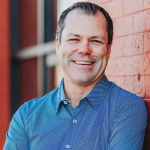 Ethan Bull is a co-founder of ProAssisting, a next-generation remote executive assistance firm for business owners and C-suite executives. With a background in hospitality and an expert in the EA space, Ethan has held a variety of senior positions, including Director of Administrative Services and senior EA to the president and CEO at Rochester Regional Health.
Ethan Bull is a co-founder of ProAssisting, a next-generation remote executive assistance firm for business owners and C-suite executives. With a background in hospitality and an expert in the EA space, Ethan has held a variety of senior positions, including Director of Administrative Services and senior EA to the president and CEO at Rochester Regional Health.
About Stephanie Bull
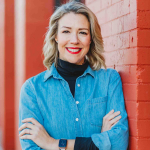 Stephanie Bull is ProAssisting’s co-founder and the former EA for J. Crew’s CEO and the CEOs of two multi-billion-dollar hedge funds. Before developing ProAssisting, Stephanie proved herself an expert in the field and a vital addition to the C-suite by fulfilling a variety of roles, including chief of staff, estate manager, and investment liaison.
Stephanie Bull is ProAssisting’s co-founder and the former EA for J. Crew’s CEO and the CEOs of two multi-billion-dollar hedge funds. Before developing ProAssisting, Stephanie proved herself an expert in the field and a vital addition to the C-suite by fulfilling a variety of roles, including chief of staff, estate manager, and investment liaison.
For information on how to work with Don visit Work With Don Williams
You can also reach out to Don Williams at https://donwilliamsglobal.com
Please join Don and his businesses in support of St. Jude’s Children Research Hospital in its Mission to cure Childhood Cancers. You can donate to St. Jude at stjude.org/donate
